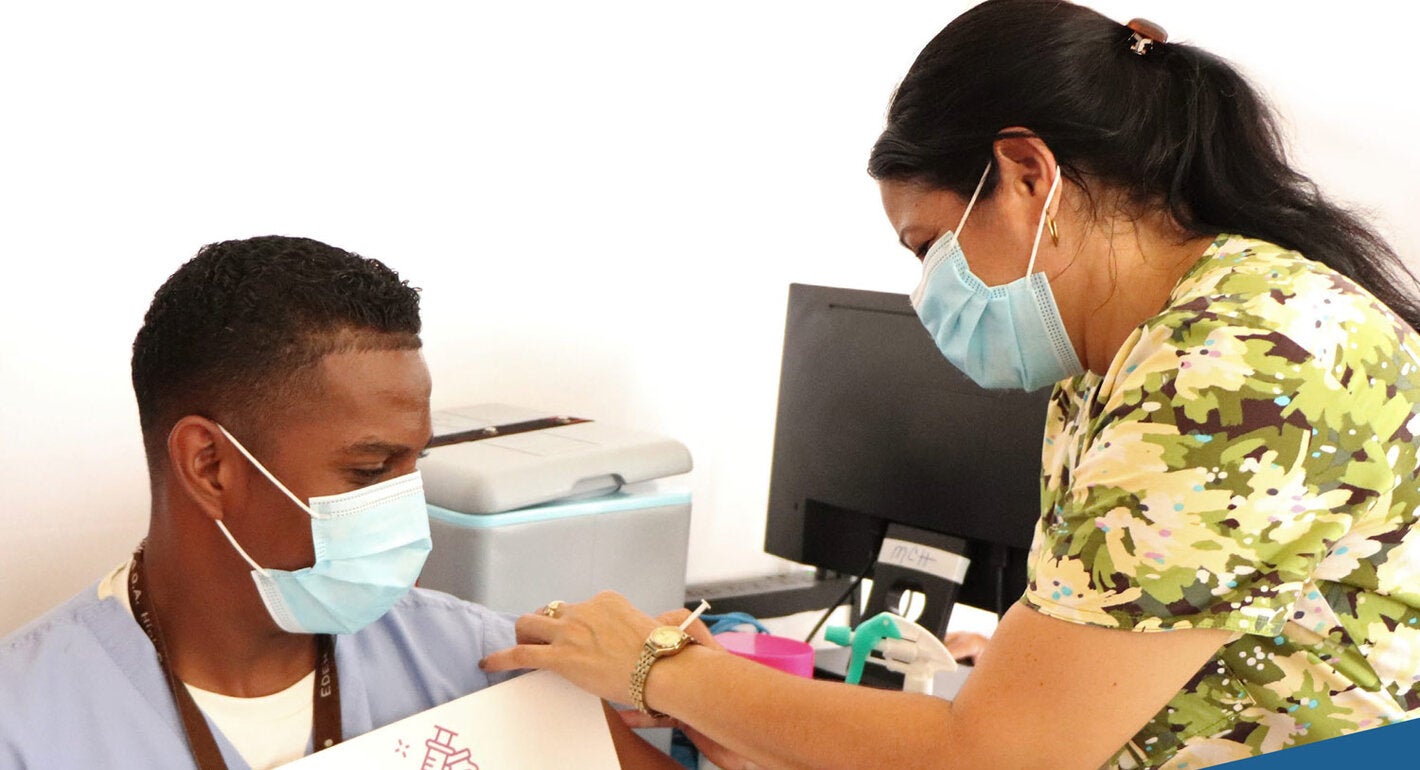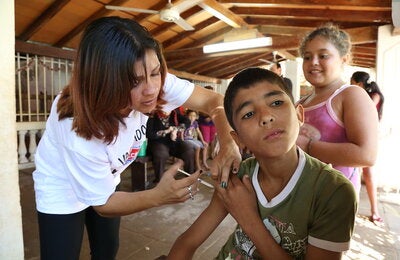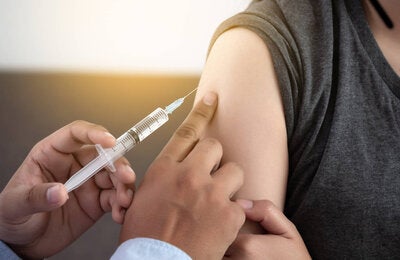
Bridgetown, Barbados, 11 October, 2021 (PAHO/WHO) -- New research from the Pan American Health Organization (PAHO) has revealed that most healthcare workers in 14 Caribbean countries regard vaccines as safe and efficient, and that vaccine information provided by authorities and healthcare providers is considered reliable and trustworthy. These perceptions are evidence informed, since all of the WHO-approved vaccines in use in the Caribbean are safe and effective, as proven by both the rigorous certification process for the vaccines, and real-world administration of over 6.3 billion vaccines worldwide.
However, a dangerous offline and online ‘infodemic’ has given rise to concerns about the safety and effectiveness of COVID-19 vaccines among the public, including some healthcare workers, reflected in low vaccine uptake in several Caribbean countries.
This was the focus of a mixed-methods study, carried out from March to April 2021 among 1,200 healthcare workers, to better understand vaccine hesitancy and to develop evidence-informed approaches to increase vaccine acceptance among this important group. To share the results and discuss the proposed recommendations, a webinar entitled ‘Improving Vaccination Acceptance among Healthcare Workers: Challenges and Opportunities’, was held on 7 October 2021.
The results were presented by Dr. Benjamin Puertas, Human Resources for Health Advisor for PAHO’s Subregional Program Coordination for the Caribbean and Dr. Martha Velandia, PAHO Regional Immunization Advisor from the Comprehensive Family Immunization Unit.
Key findings from this research revealed that physicians are more inclined to accept vaccines among other healthcare workers (nurses, public health professionals and allied health professionals) and that healthcare workers over the age of 51 have greater motivation to advocate for vaccines.
Most healthcare professionals believed that vaccines would protect them against severe COVID-19 infection; however, almost half of the respondents went on to state that the country of manufacture was a key factor in their vaccine acceptance, and cited concerns about the relatively short time taken to develop the COVID-19 vaccines. Almost a third of the sample indicated that they needed to know more about the vaccines to make informed decisions, and disclosed that information on social media shaped their opinion of COVID-19 vaccines.
Respondents described concerns relating to four behavioural domains related to COVID-19 vaccines: thinking and feeling, social processes, practical issues and motivation. The study also identified concerns related to confidence in specific vaccine brands, in which respondents would be willing to get vaccinated with a different brand of the COVID-19 vaccine than the vaccines that are available in their countries. Respondents conveyed opinions around vaccine benefits, safety and trust toward new vaccines.
Healthcare workers are a trusted information source for the public when it comes to vaccines and vaccination, and they are a key audience for initiatives designed to address the COVID-19 pandemic and improve vaccine uptake.
“This concerns us all; as public health institutions, our health care workers are our highest priority. Not only because of their frontline role and exposure in caring for those who are ill, but also because of their important role in encouraging their clients, friends and loved ones to accept vaccination as an important tool in fighting COVID-19.” said Mr. Dean Chambliss, Subregional Program Director, Caribbean, PAHO/WHO.
The briefing session featured informed discussions on the way forward, including the development of communication strategies, training and development of policies to support vaccine acceptance in Caribbean Member States. Further research on vaccine acceptance among healthcare workers in other subregions was also recommended.
The meeting concluded with a reiteration of the issue at hand, which is the misinformation about COVID-19 vaccines. This creates unfounded concern among individuals working in health care professions. The key to successfully expanding coverage is to inform all citizens about the safety and effectiveness of COVID-19 vaccines, which are the Caribbean region’s passport to economic recovery, face-to-face education for our children, and a return to normal life.
The webinar was moderated by Ms. Karen Broome -Toppin, Subregional Immunization Advisor, PAHO.
Access the recording here.



